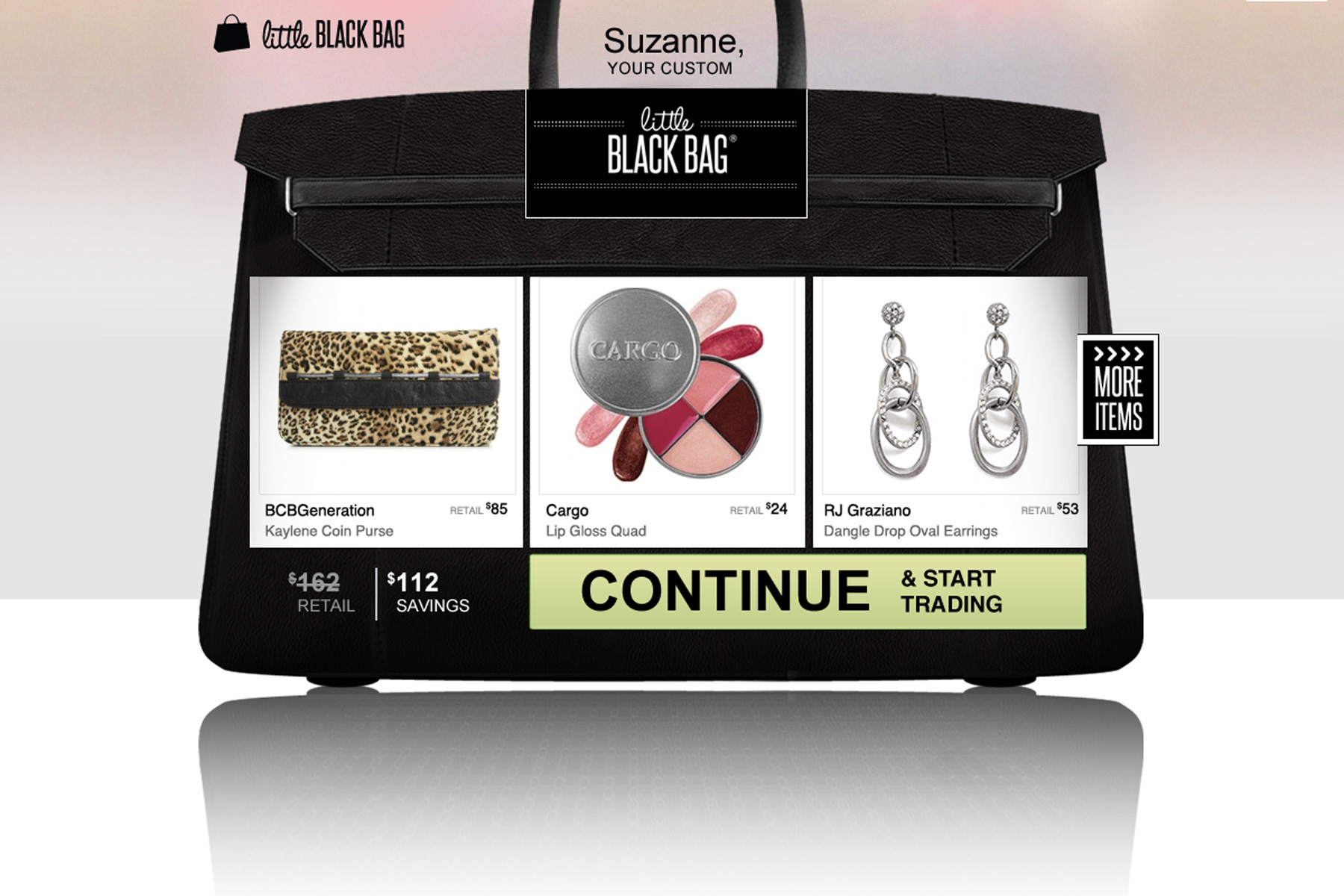New ecommerce venture, Little Black Bag (LBB), derives inspiration from a Japanese retail sensation that surprisingly, is seldom heard of, nor practiced stateside. In Japan, Fukubukuro is easily as well-known and well-anticipated a retail holiday as Black Friday is in the U.S. Translating in English to “lucky bag,” Fukubukuro is a retail event that takes place the first week in January when retailers stuff grab bags with merchandise, seal them shut, then sell them at a deep discount to curious consumers who furiously tear into them at social gatherings with friends, and swap for what they really want. A small percentage of these bags have a special item inside (the “Lucky Bag”) which is from a retailer’s new offerings, and costs more than the value of all the goods in the bag combined.
Officially launched on Jan. 31, 2012, LittleBlackBag.com aims to bring the same sort of excitement Japanese consumers (particularly women) feel during Fukubukuro, to online shoppers in the US.
With three ecommerce heavyweights at the helm, the site is well on its way to garnering the kind of enthusiastic audience it needs to make the concept a success. The trio is comprised of Dan Murillo, Co-Founder and CEO, David Weissman, Co-Founder and President, and Sasha Siddhartha, Co-Founder and Chief Technology Officer. Murillo and Siddartha were both previously at Microsoft and Weissman was a VP at GSI Commerce who exited after the $2.4 billion eBay acquisition. The power team didn’t have too much trouble getting VC funding given their impressive ecommerce chops.
But how did three men, regardless of their clear Internet prowess, manage to convince investors that they knew enough to launch a women’s retail site, and a very social one at that, without a woman on the team? Turns out that wasn’t too hard either, as they soon recruited Suzanne King, a 13-year Macy’s veteran who oversaw $200 million in accessories, gifts and handbags as LBB’s VP of Merchandising.
Not every single step of the way has been painless though, said Weissman. “There’s always surprises,” he said. The first was that the site was a lot harder to build than the team had originally thought.
“It’s all custom development, the only commonality with other ecommerce sites is the check out page,” Weissman said. “Everything else…there’s nothing out there for it. You couldn’t go to a Magento and say, ‘Let me take your platform and make it work.’ The surprise was it was more complex – it’s a lot of nailing the user experience to a point where we promise the site is going to be fun and social.”
Weissman said that what makes LBB unique is that it’s not just about buying products or liquidating a brand’s inventory, as most flash sale sites do. Instead, it’s about social commerce in its truest sense, as women are encouraged to swap products in their bags with other customers online. The basic premise is that customers have a week to search the LBB gallery and trade with others to assemble the perfect bag. Lucky users can win “Delights,” or hot seasonal products worth four to five times the price of their entire bag. Once trading is over, products are shipped.
“This is the first incarnation of social commerce,” said Weissman. “Most other forms of social commerce, you’re still shopping by yourself.”
![]() Another distinguishing factor of the site is that because it is not a liquidation site, customers are able to discover brands they may not have been privy to or a customer of before. On a typical flash sale site, a customer can easily become satiated with items from that brand by picking out four or five item’s from a particular sale. On LBB, women might be surprised by a new brand their bags and be more prone to explore that brand further.
Another distinguishing factor of the site is that because it is not a liquidation site, customers are able to discover brands they may not have been privy to or a customer of before. On a typical flash sale site, a customer can easily become satiated with items from that brand by picking out four or five item’s from a particular sale. On LBB, women might be surprised by a new brand their bags and be more prone to explore that brand further.
According to Weissman, LBB tested the site with around 200 women to understand their interactivity levels, their responses to the brands and how to get them to be more social. In the future, the company will introduce new verticals such as women’s shoes, and just recently introduced a select amount of beauty products. It does not plan to expand into men’s fashion anytime soon as initial tests did not show great response with men as a preferred way to shop online.
This is the second of our monthly new online retailer series, where we will be profiling a new(ish) online retailer and/or new technology for multi-channel retail. If you have any ideas for us, please feel free to send along as your idea of a great new online retailer might be the next feature! Send all ideas, questions, etc., to kelly.hushin@wbresearch.com.






Recent Comments